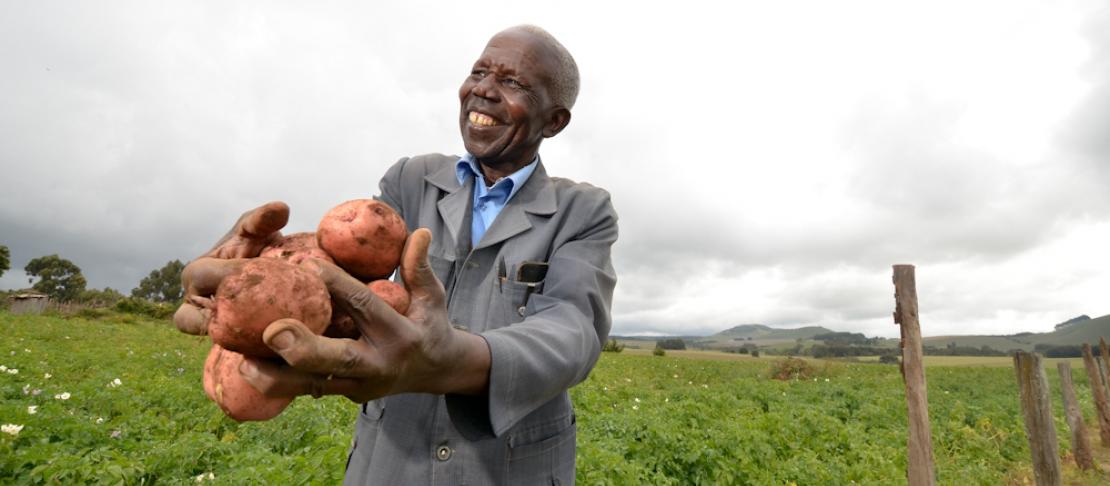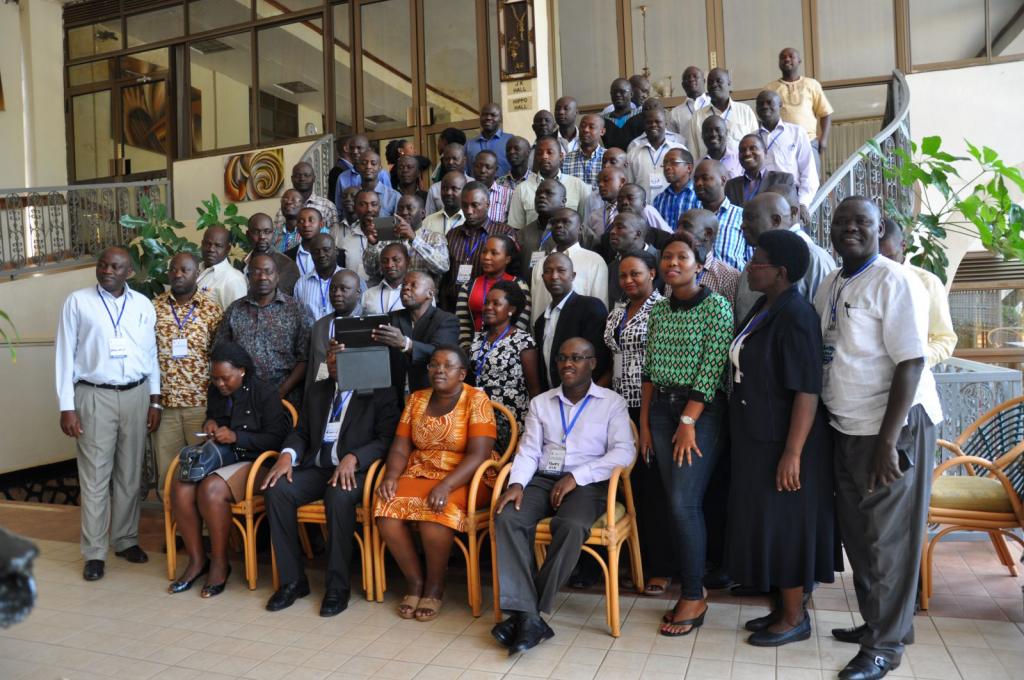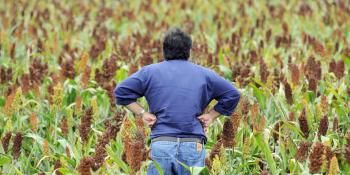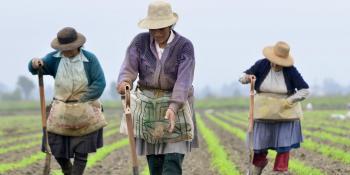Mainstreaming climate change into Uganda’s agriculture sector plans

Uganda develops guidelines to mainstream climate change issues into the agriculture sector policies, plans, programs and activities.
The Ugandan Ministry of Agriculture, Animal Industry and Fisheries (MAAIF) with support from the International Institute of Tropical Agriculture (IITA) led Policy Action for Climate Change Adaptation (PACCA) project, and USAID Feed the Future Enabling Environment for Agriculture (USAID - EEA), organized a national level stakeholder workshop to validate the recently developed Climate Change Mainstreaming Guidelines for the Agricultural Sector in Uganda.
The validation workshop was held on 29 January 2016 at Colline Hotel, Mukono. Stakeholders from government ministries, departments and agencies, farmer organizations, civil society organizations, private sector, development partners, research institutions, academia, and the media attended.
“MAAIF recognizes that climate change impacts can only be tackled by collaborative efforts,” Sunday Mutabaazi, chairperson of the MAAIF climate change task force said in his opening remarks.
The guidelines are in line with national ones developed in 2014 by the National Planning Authority (NPA) in partnership with the Climate Change Department (CCD) to harmonize sector-specific guidelines and ensure they are aligned to national development plans.

Stakeholders pose for a group photo during the validation workshop. Photo: J. Okiror (IITA)
Their feedback will be consolidated and integrated into the draft guidelines to be approved by the ministry, and rolled out for implementation by different climate change actors. During the validation workshop, the participants, who were divided into smaller activity groups based on sub-sectors (crop, livestock, and fisheries), scrutinized the document and gave their inputs. Some of the guiding questions included: Why do we mainstream? What are the roles and responsibilities of various actors? And what are the entry points, tools and processes of mainstreaming?
“Once validated, stakeholders at all levels should ensure that the guidelines are implemented,” said Chebet Maikut, commissioner CCD, Ministry of Water and Environment. He appealed to the districts that had not integrated climate change into their District Development Plans (DDPs) to urgently do so.
As the name suggests, the guidelines will facilitate mainstreaming of climate change issues into the agriculture sector policies, plans, programs and activities by providing basic and flexible guidance on entry points. They also include basic steps and tools on how to mainstream climate change adaptation into agriculture policy processes.
The process of developing the guidelines
The draft agriculture sector guidelines were developed through a consultative bottom-up approach led by MAAIF that took nearly a year starting November 2014.
Seven regional workshops were organized—Eastern, Northern, West Nile, Central, South Western, Western, and North East—by MAAIF with support from PACCA and USAID EEA to identify climate change issues to integrate in the development of the guidelines. Stakeholders, including farmers, government and NGO staff, politicians, private sector, were brought together to share their experiences on climate change impacts in their localities, how they were adapting and what they think should be done to combat the effects of climate change.
In September 2015, after collecting and analyzing the information, the draft guidelines were presented to a small technical committee for review. The review team, which included members from MAAIF, NPA, CCD and IITA, studied the document for completeness, gaps and appropriateness of the information given.
In December 2015, the second draft was reviewed by multi-stakeholders to test for appropriateness of the guidelines in mainstreaming climate change adaptation and mitigation into the Agriculture Sector Strategic Plan (ASSP). The plan is a five-year strategy, which defines the priorities and interventions to be implemented for the period 2016-2020.
Read more about the ASSP: Climate proofing Uganda's agriculture sector
About PACCA
PACCA is a CGIAR Research Program on Climate Change, Agriculture and Food Security (CCAFS) flagship project (policies and institutions) implemented by IITA, the International Center for Tropical Agriculture (CIAT) and the International Livestock Research Institute (ILRI). To learn more about PACCA´s work on climate change policy engagement see project page.
John Francis Okiror is a Communications Intern with the Internationa Institute for Tropical Agriculture. He supports communications for the IITA-led PACCA project. Blog edited by Vivian Atakos, CCAFS EA Communications Officer.



